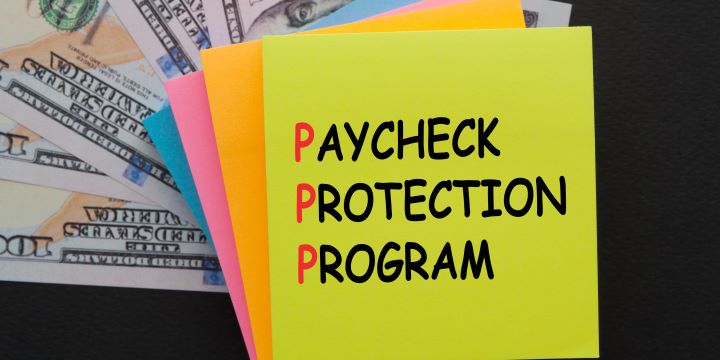Reporting P.P.P. Fraud - A Step-By-Step Walkthrough

The government has strict requirements and guidelines on how companies can use PPP loan funds. If a company fails to adhere to these guidelines, it can face federal prosecution for PPP fraud.
The United States offers a substantial monetary reward to whistleblowers who report fraudulent activity related to the Paycheck Protection Program.
Businesses interested in the Paycheck Protection Program should research the precise program information, eligibility criteria, and application requirements supplied by the Small Business Administration and consult with financial and legal professionals for individualized counsel. Learn more about how to report PPP fraud with the help of an experienced attorney.
Identify the Fraud
There are many ways to commit PPP fraud, but a few key characteristics can help investigators spot it. Individuals or businesses that provide inaccurate information during the application process or use PPP funds for purposes outside the program’s scope will likely be charged with federal crimes.
For example, a software engineer who noticed that many companies listed on a government website receiving Paycheck Protection Program loans didn’t exist or exaggerated their payroll expenses created a website to expose potential fraudsters. Another standard red flag is evasiveness during internal audits or compliance checks.
Individuals and businesses have been accused of fraudulently obtaining economic injury disaster loans and using them for personal gain instead of business purposes. They have also been accused of loan stacking, submitting applications to multiple lenders, and fraudulently inflating their employee headcount or payroll expenses to obtain larger loans.
Some individuals have even been caught claiming deductions on their tax returns for expenses paid with PPP funds. This can lead to tax evasion charges under 26 USC 7201, which carry substantial fines and up to five years of federal imprisonment. If you’re facing PPP fraud allegations, an experienced attorney can help you avoid criminal prosecution by pointing out inaccuracies in the evidence and guiding the case toward a civil disposition.
Gather Evidence
While many reputable companies benefited from the PPP, not all did. Many people were accused of misusing the funds to boost their businesses or personal wealth. To do so, they would create fictitious entities or overstate their number of employees to qualify for the loan. It is estimated that tens of thousands of people and businesses committed fraud to obtain the loan.
Those who commit this fraud may be found guilty of breaking the False Claims Act and face severe criminal penalties. If you suspect a company is defrauding the government, you should immediately report your suspicions to a whistleblower lawyer.
As you gather evidence, you must avoid destroying any critical documents in your case. Throwing away any paperwork related to a business can be considered a crime and is an indication that you are trying to conceal evidence.
Suppose you believe that an individual or company is defrauding the government through a USP loan. In that scenario, you should consult a qualified lawyer who can walk you through the procedure and assist you in gathering the required evidence to back up your claim. They can also help you determine your options. For example, you may be eligible for a significant whistleblower reward. These rewards can include reinstatement to your job, double back pay, and compensation for special damages, including legal fees.
Submit a Report
While the PPP was intended to provide much-needed relief to struggling small businesses during the COVID-19 pandemic, the substantial funding and loose lending criteria made the program a tempting target for fraudulent actors. Consequently, the government has launched a PPP fraud investigation to identify unscrupulous loan recipients and to hold them accountable for their illicit activities.
To commit PPP fraud, criminals often use stolen identities to apply for and receive a PPP loan. They can purchase names, dates of birth, and Social Security numbers from the dark web or steal them from recent data breaches. Once they have this information, they can flood online systems with fake applications to snag millions in often fraudulently used loans. Criminals have used PPP funds to pay off mortgages, buy luxury cars, take expensive vacations, and more.
Lenders also play a critical role in preventing and reporting PPP fraud. They should carefully examine each applicant’s application, review bank records, audit reports, and credit history, and consult with a trusted appraiser and title company. They should also communicate with applicants and loan agents to verify their accuracy.
People who know of PPP fraud and misuse can protect themselves from retaliation by speaking to a whistleblower lawyer. They can also be eligible for a whistleblower reward of 15-30% of the government’s recovery when they file a qui tam lawsuit.
Follow Up
The PPP is a forgivable loan program established by the Coronavirus Aid, Relief and Economic Security Act (CARES) to keep small businesses hiring during the COVID-19 pandemic. Unfortunately, the program has been plagued by evil behavior by individuals and companies. Some have submitted false payroll, bank, and tax records to obtain loans they did not qualify for, while others used the funds for personal purposes rather than business-related ones.
The CARES Act allows anybody with knowledge of fraud against the government to sue on behalf of the federal government in a civil action, often known as a qui tam lawsuit, and get a share of the recovery. If you have observed PPP loan fraud, contact a skilled attorney who can explain your legal rights and choices.
A well-qualified lawyer can review your information, assist in drafting a complaint, and help you file it in federal court under seal. Once the government decides to intervene in your case, a federal court judge will approve your lawsuit and allow you to proceed against the offending party.
One common type of fraud against the PPP is filing multiple applications, sometimes for the same company under different names, and claiming numerous employees to boost the company’s employee count.
